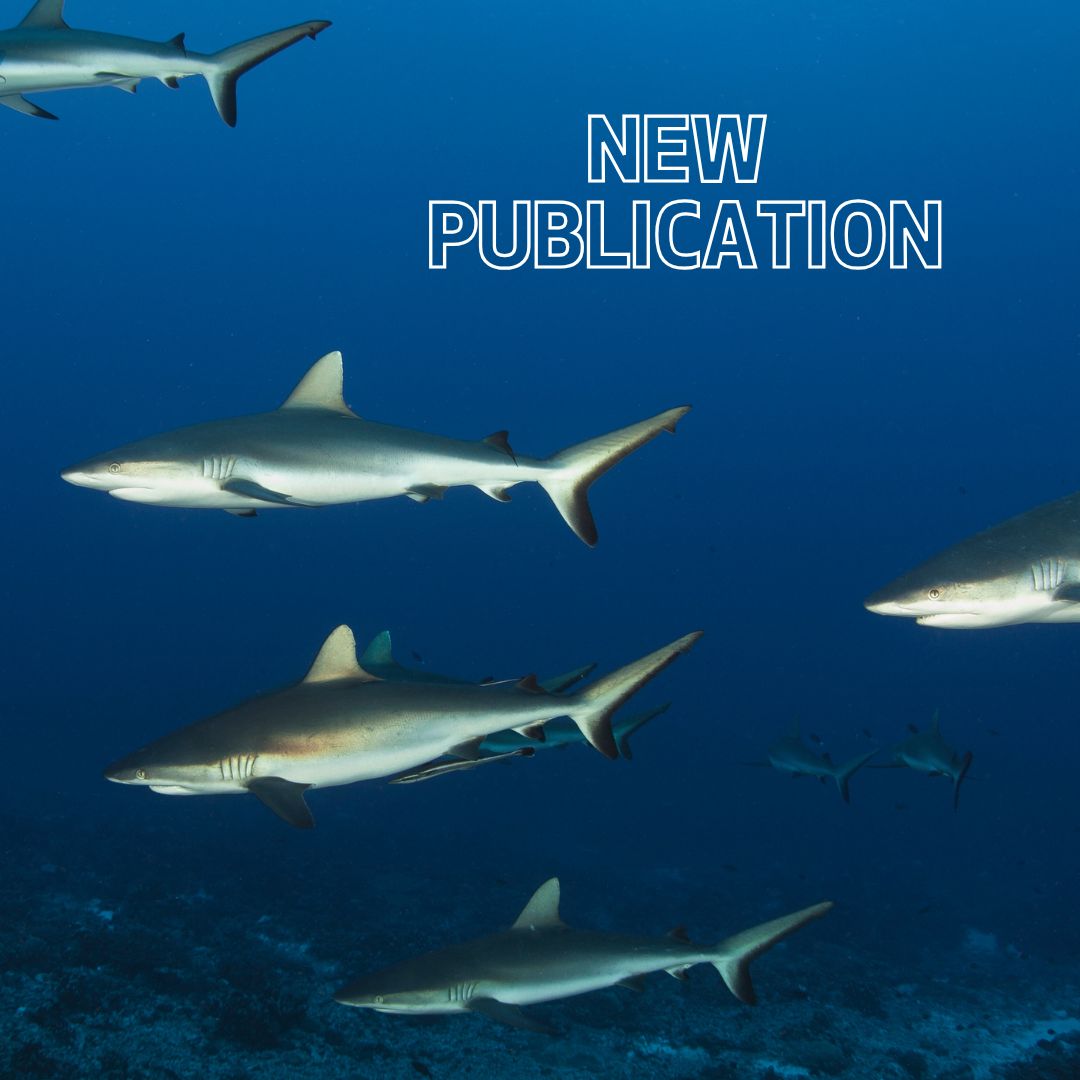Study in the Seychelles reveals that sharks and rays are at risk — even in protected areas
A recent study conducted on the small island of Frégate, in the Seychelles, reveals that sharks and rays are disappearing at an alarming rate — even in areas that are theoretically protected. The research took place between 2019 and 2022, using underwater cameras that recorded the presence of these animals in a non-invasive way.
The results were published last June in the prestigious scientific journal Marine Biology, in an article signed by an international team, which includes MARE researchers Rui Rosa, Maria V. Lourie, Margarida Vizeu-Prinheiro, Francisco Borges, Melanie Court, and Catarina Pereira Santos.
The data collected made it possible to identify some specific areas of the island where the presence of these animals is still relatively common. Places such as Barracuda Rock or Castle Rock seem to function as natural refuges and may be crucial to their long-term survival. For this reason, these locations are considered a “hot spot” for marine biodiversity and, therefore, areas that deserve special protection.
Over three years, the researchers identified 18 different species of sharks and rays. However, more than half of these species are classified as endangered by the International Union for Conservation of Nature (IUCN).
In addition to overfishing and the destruction of natural habitats, the study identified another worrying factor: water temperature. When the sea water exceeded 30 °C, the presence of sharks and rays decreased considerably. This is a clear sign that climate change is directly affecting marine life.
One of the most revealing findings of this study was the relationship between species and type of marine habitat. Sharks showed a preference for areas with rocks and gravel, while rays were more frequently found in areas with rocks and sand. These details, which at first glance may seem technical, are fundamental: they help identify the habitats that most need to be preserved to ensure the survival of these animals, which are essential to the health of marine ecosystems.
Despite the remote location of Frégate Island, researchers warn that human pressure, whether from fishing, unregulated tourism, or the impact of climate change, is leaving deep marks on shark and ray populations.
Given this scenario, action must be swift and coordinated, including measures such as the creation and reinforcement of marine protected areas; More effective regulation of fishing practices, especially those that put these species at risk; Continuous monitoring of populations, using non-invasive technologies such as underwater video; And a serious commitment to combating climate change, which is already profoundly altering marine life patterns.
This study sends a clear warning: not even tropical paradises are immune to the effects of human activity. Protecting sharks and rays is more than just saving species—it is protecting the balance and future of our oceans.
To access the article, click HERE.
Text by Patrícia Carvalho
